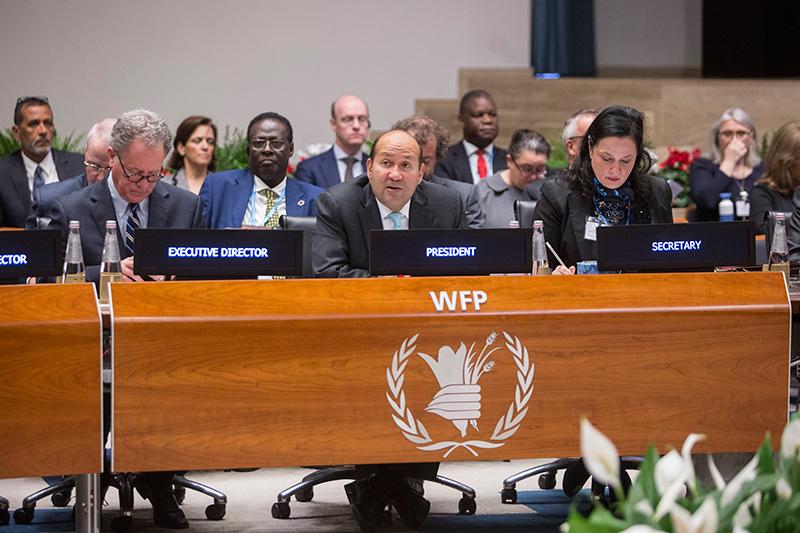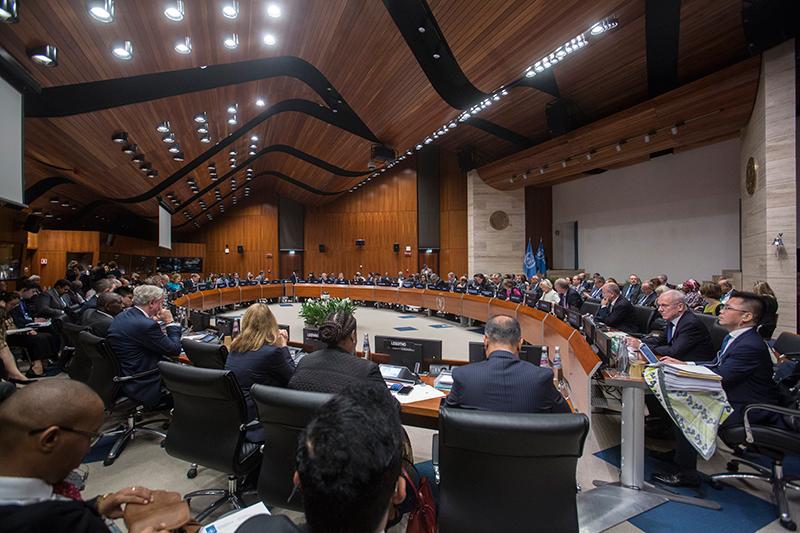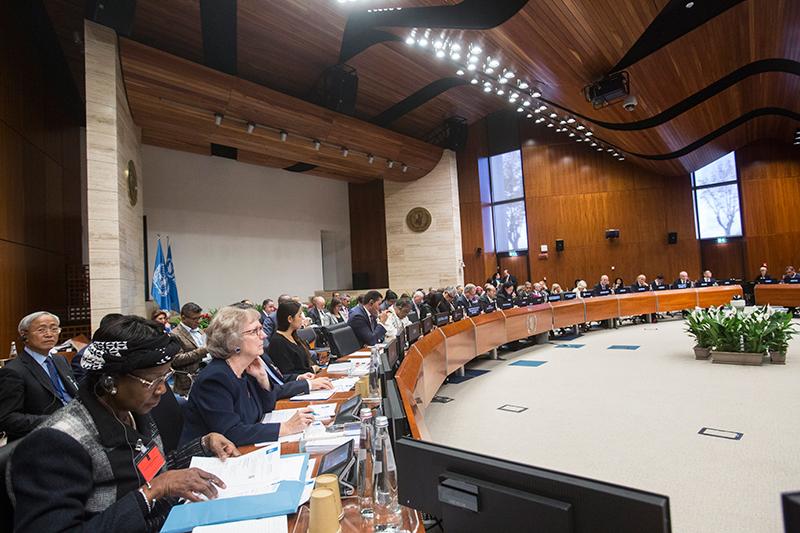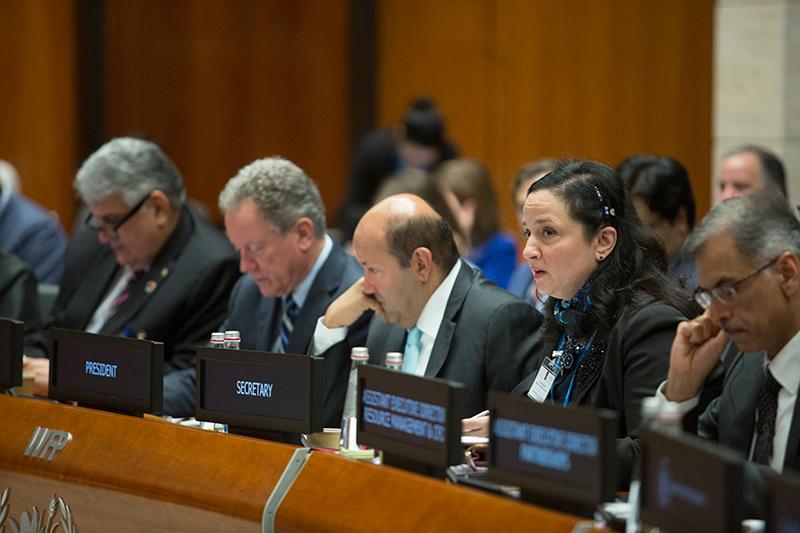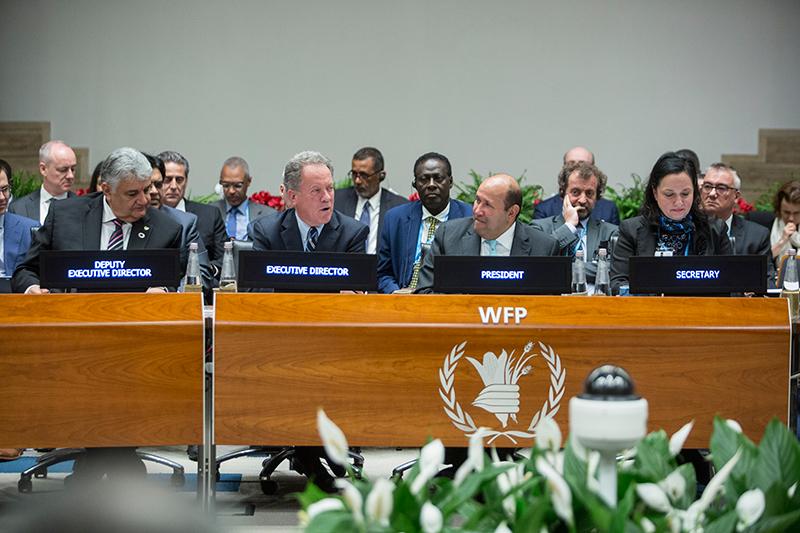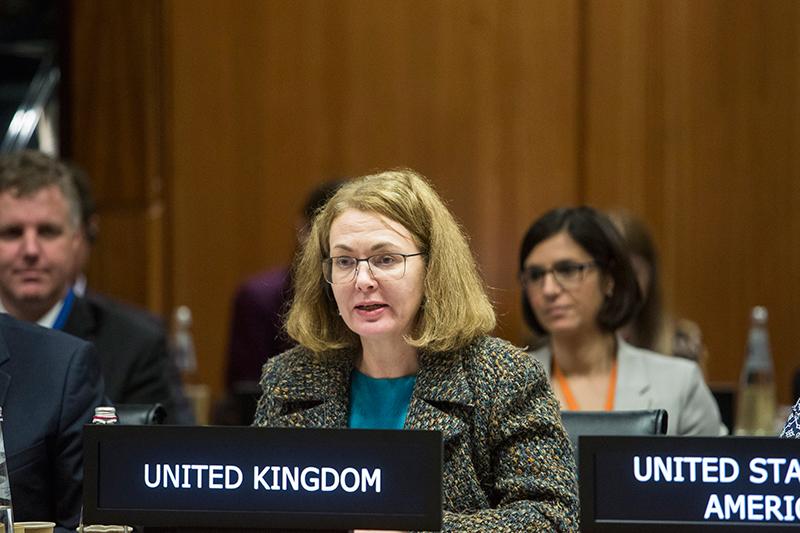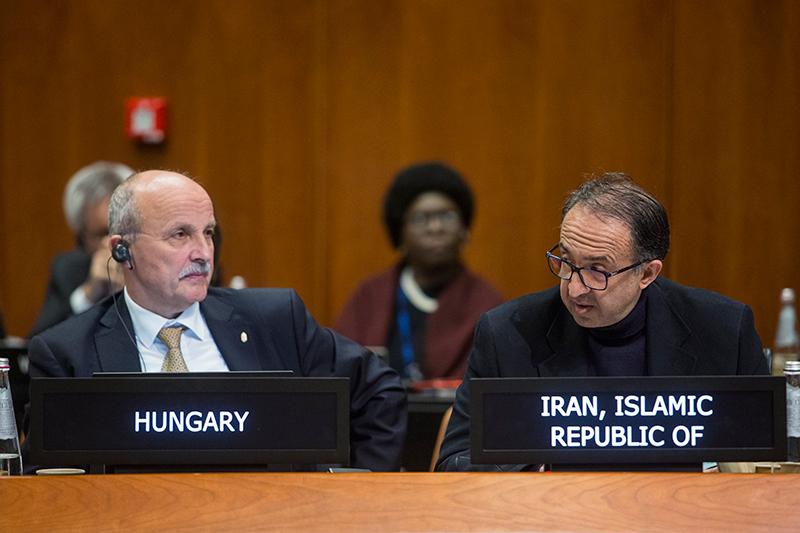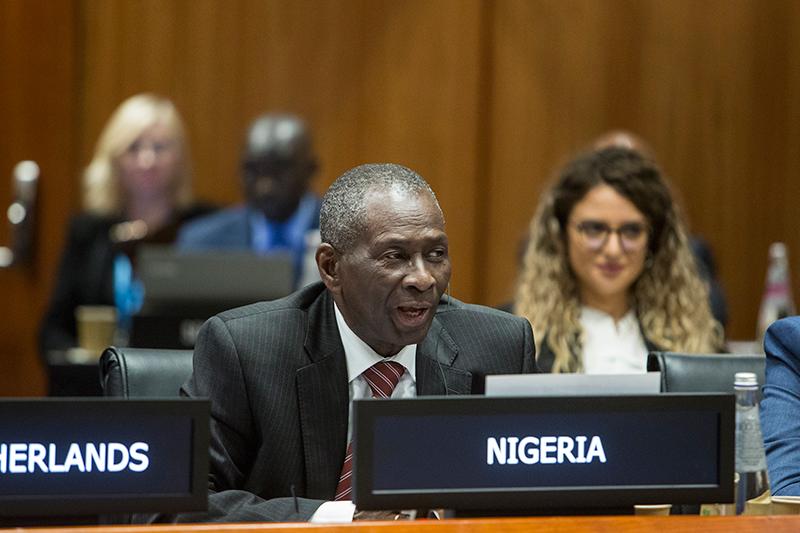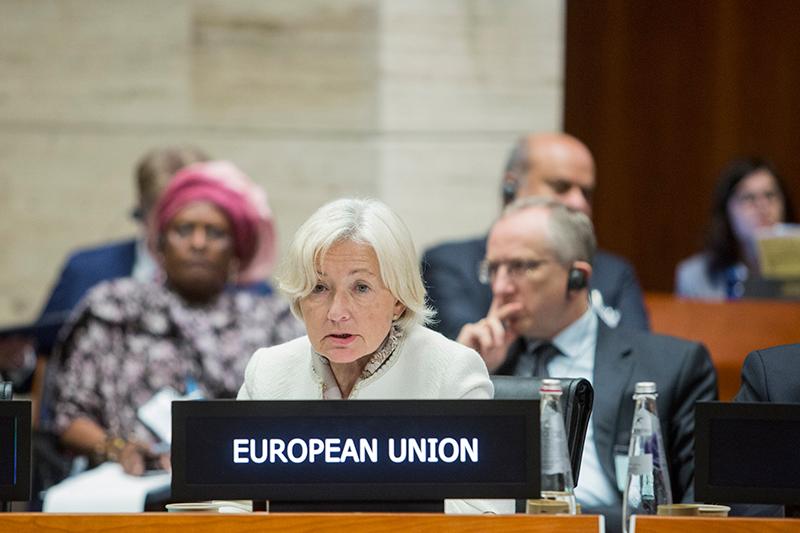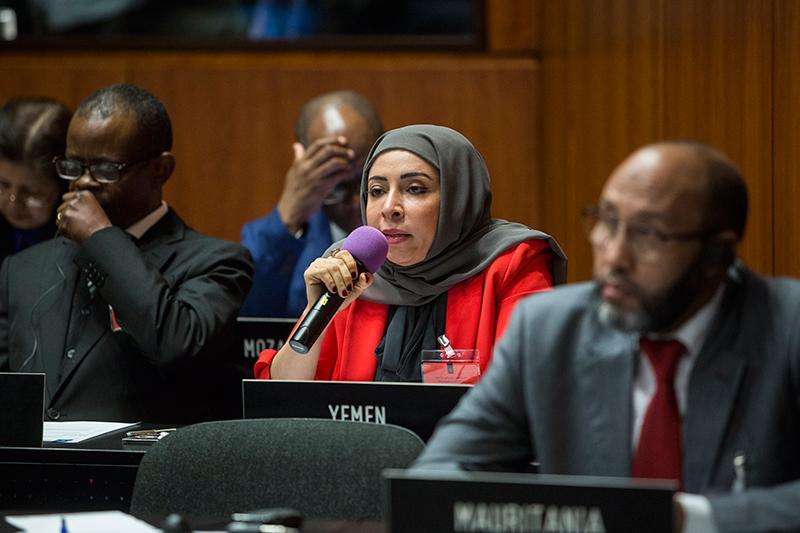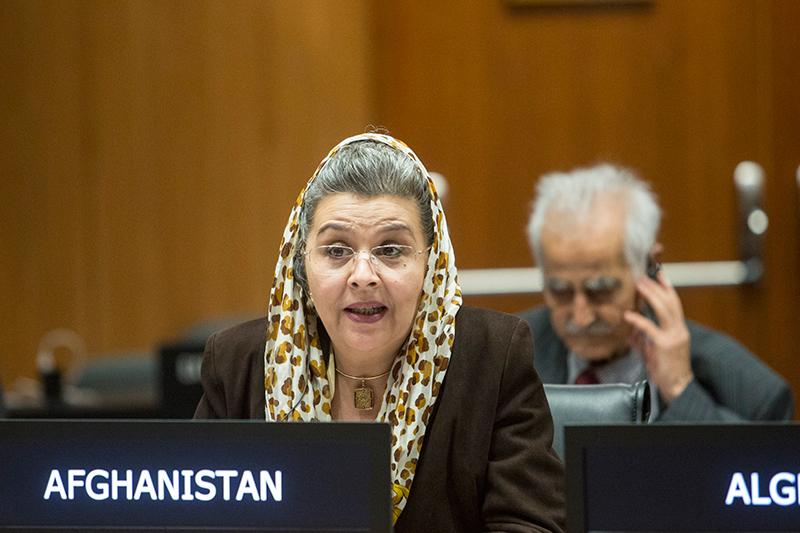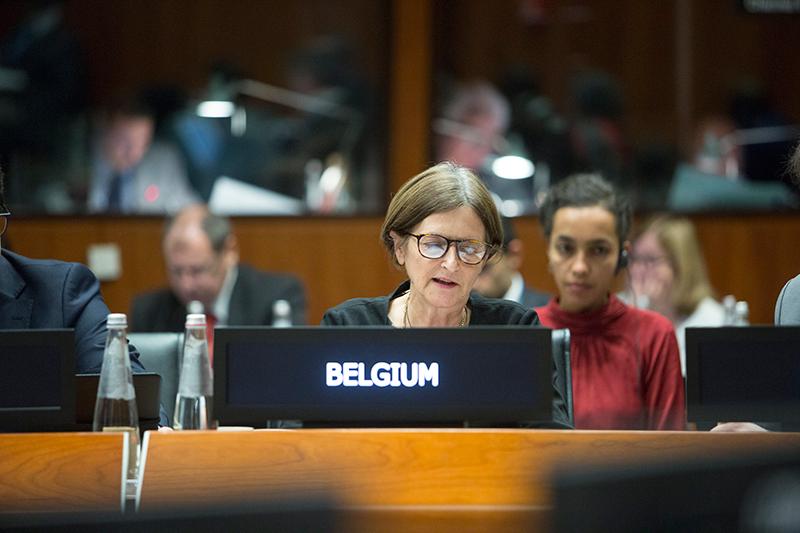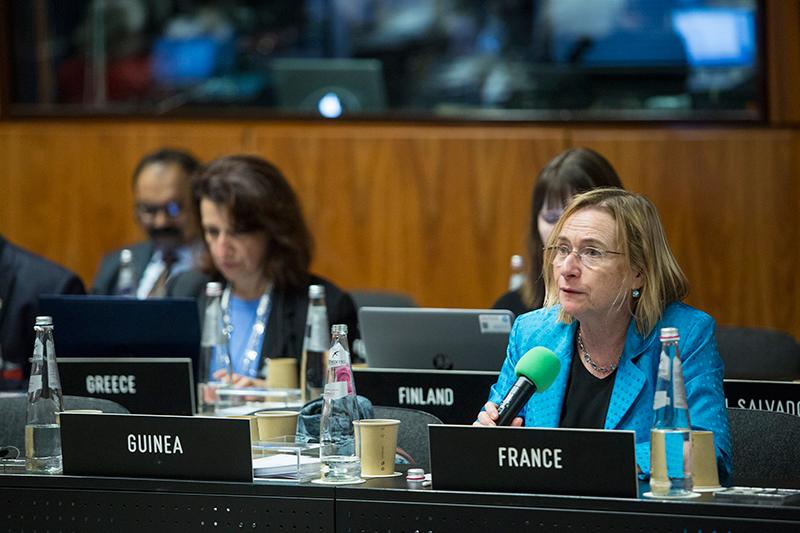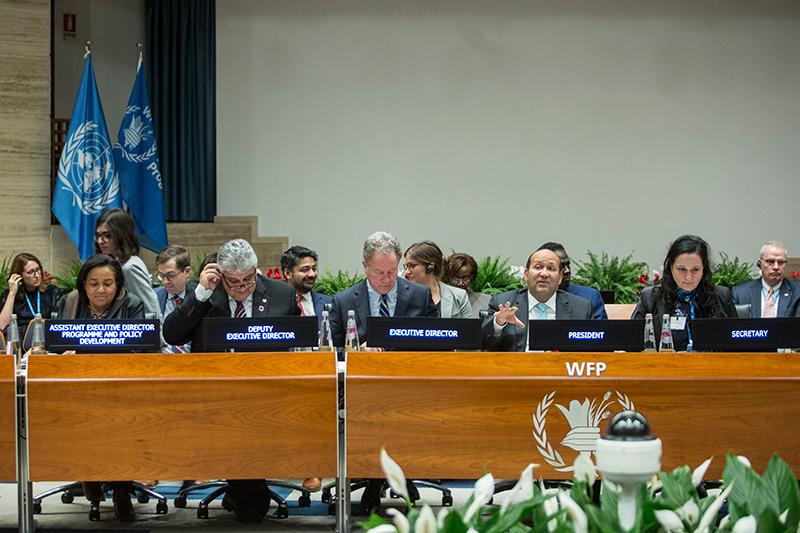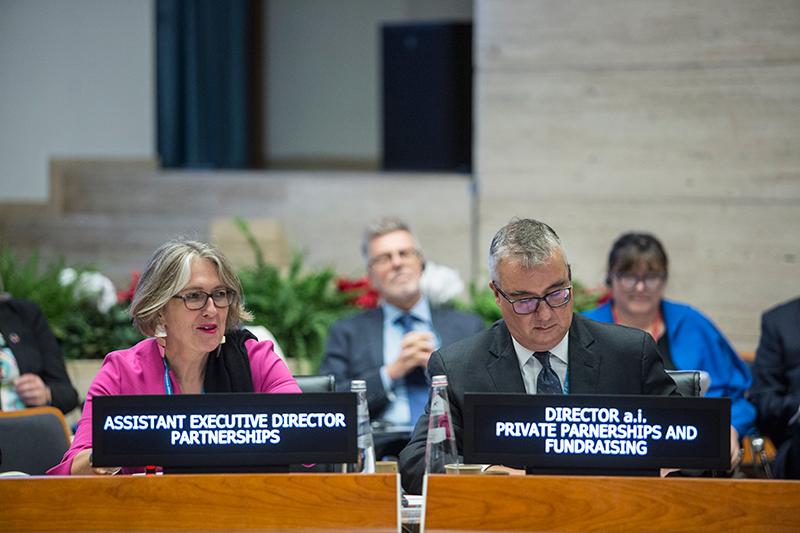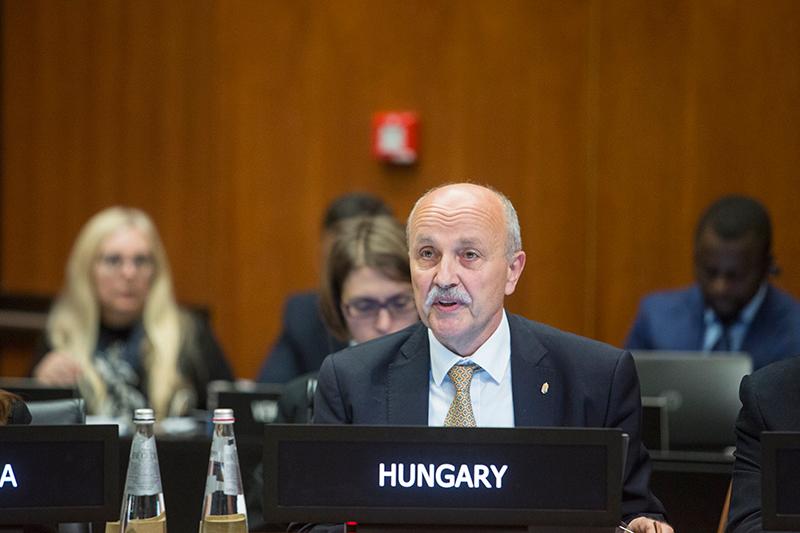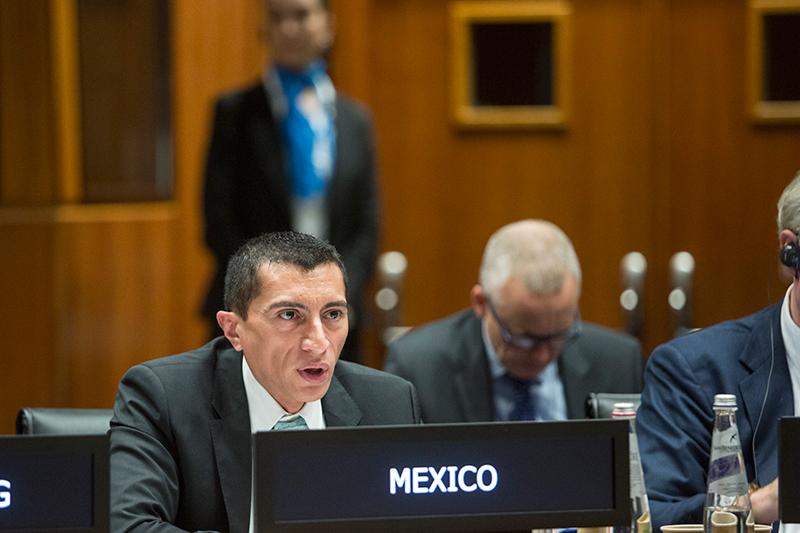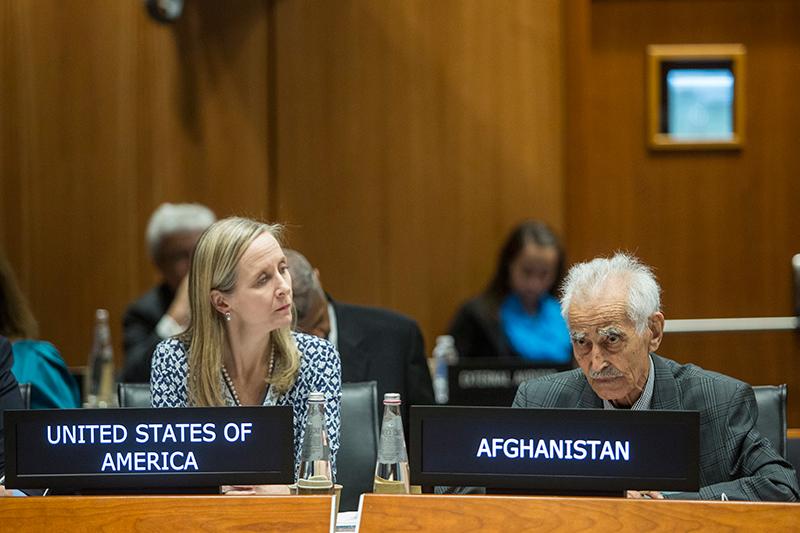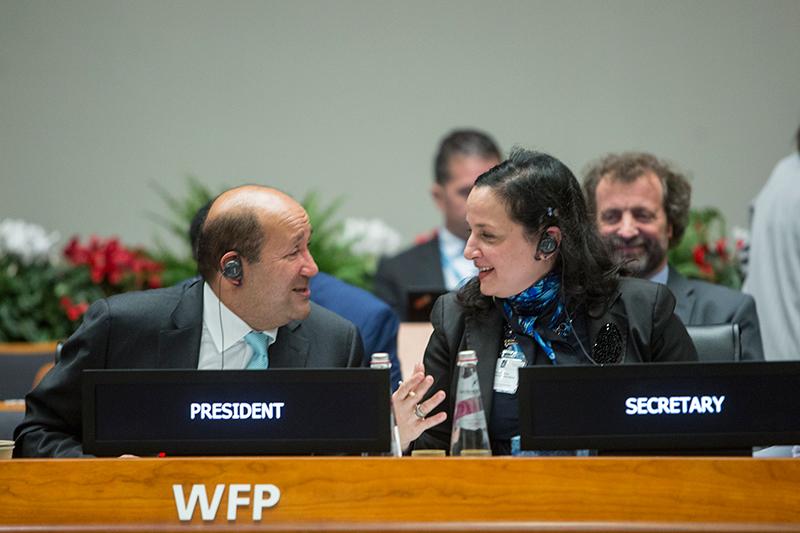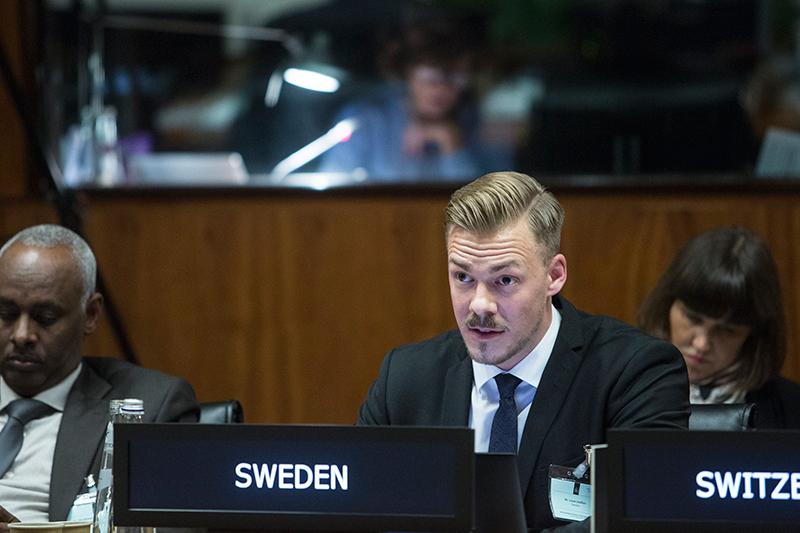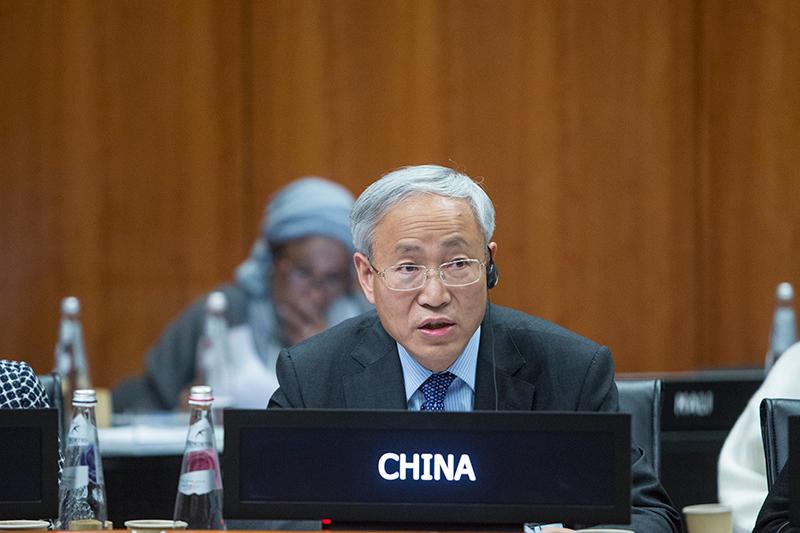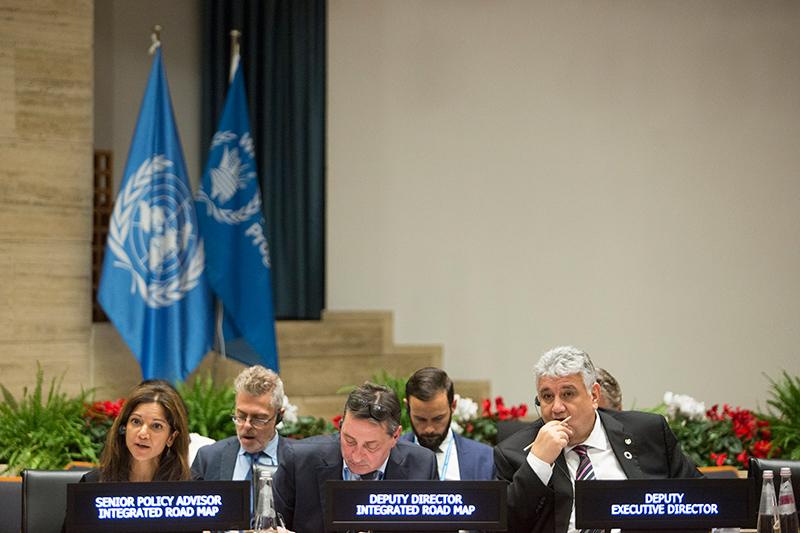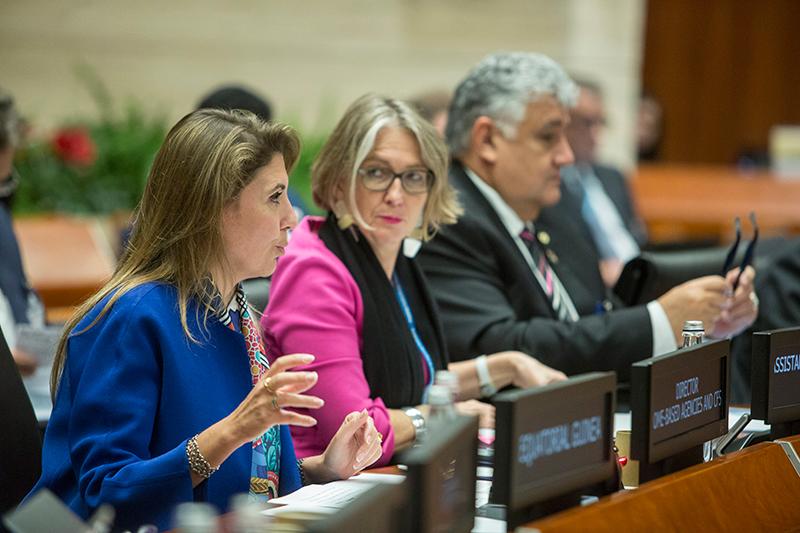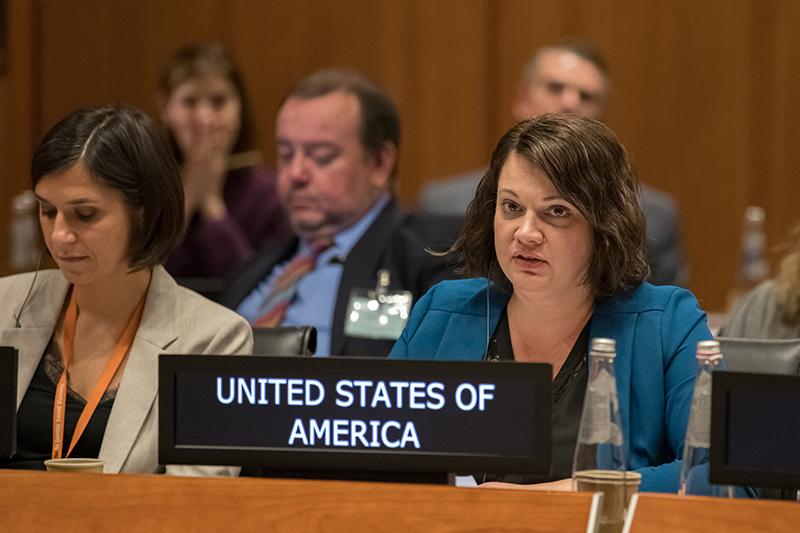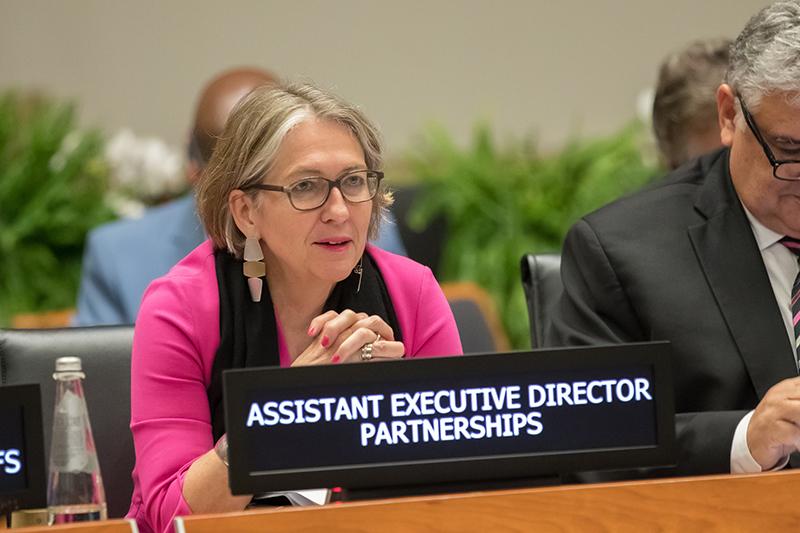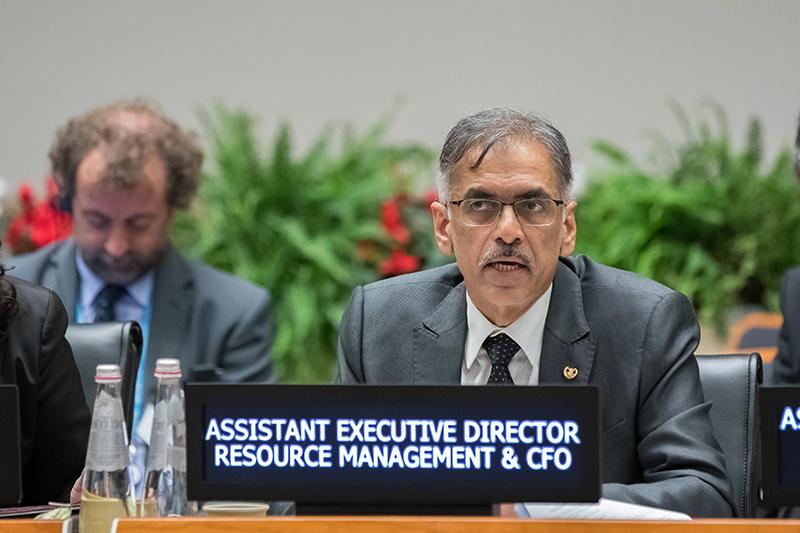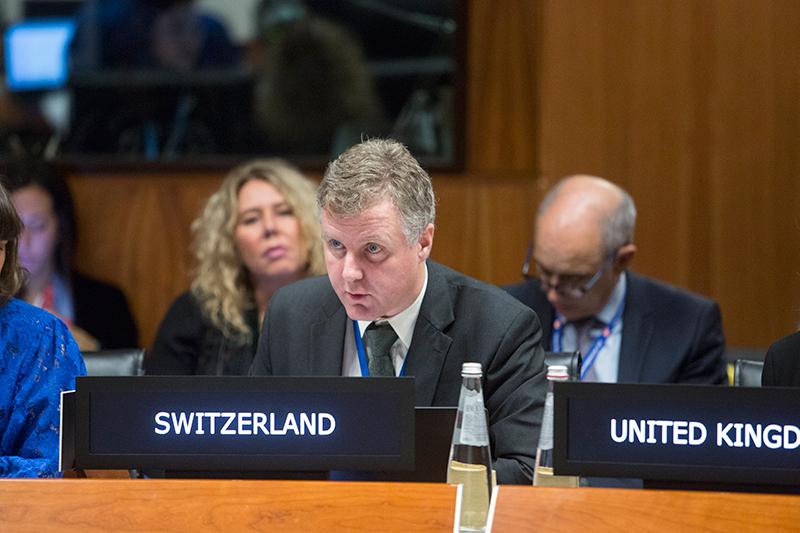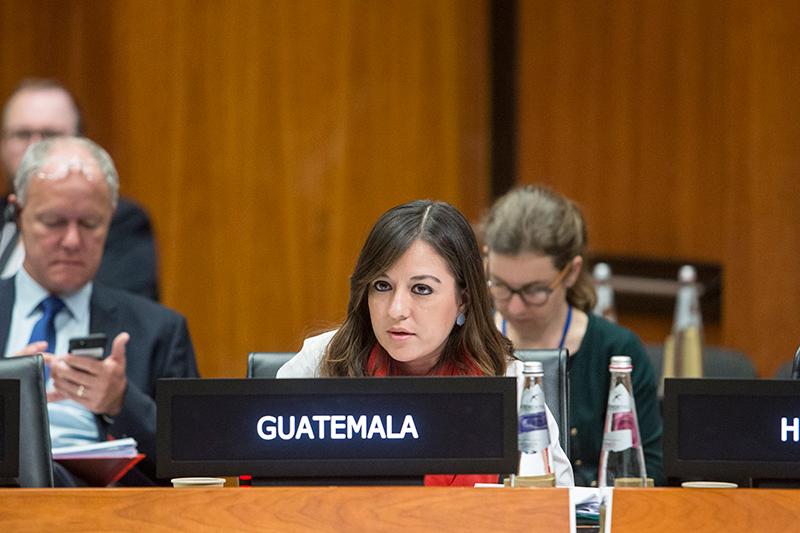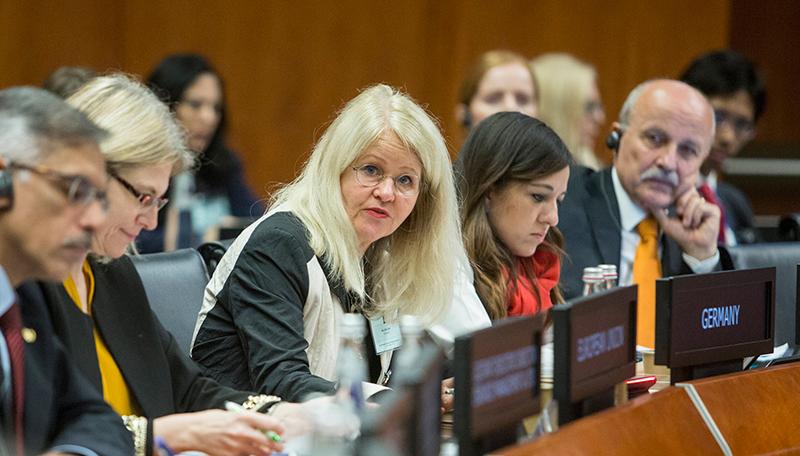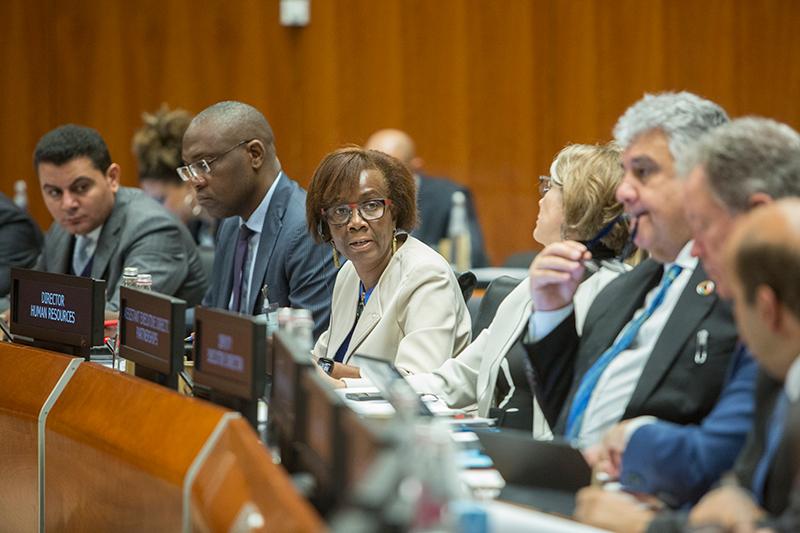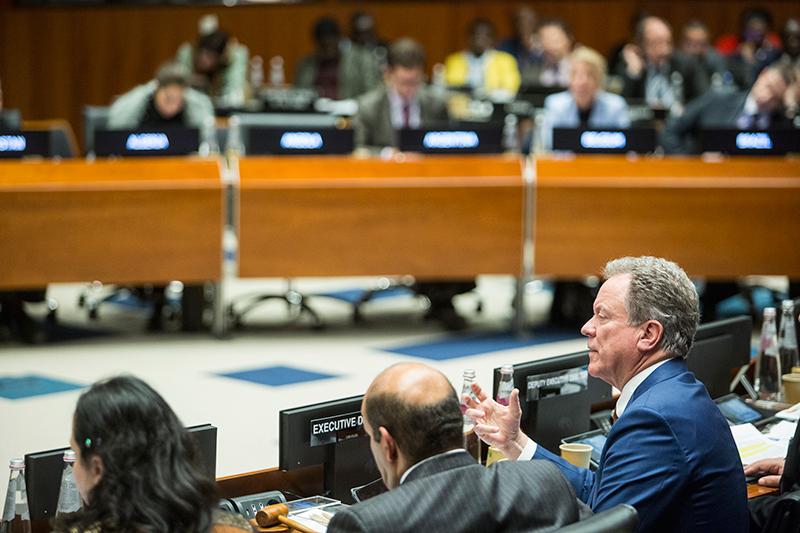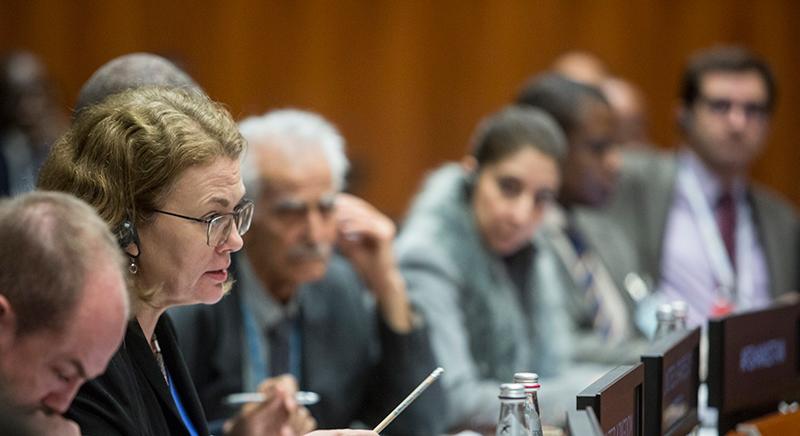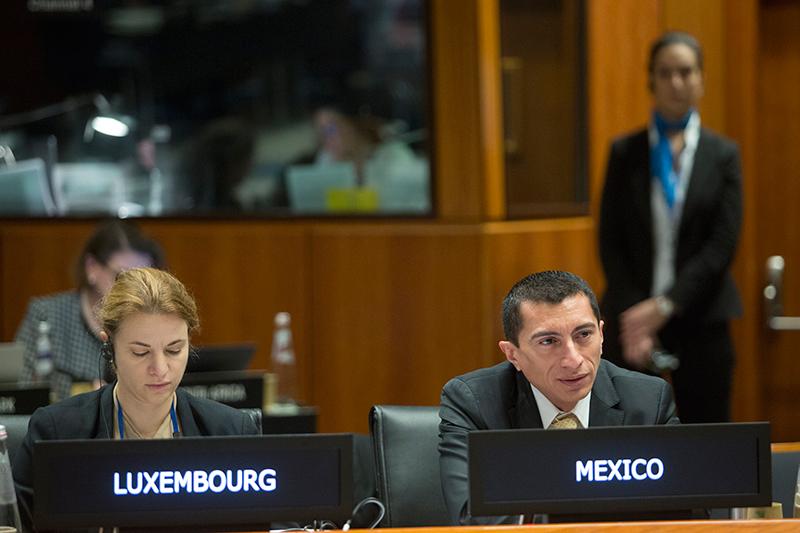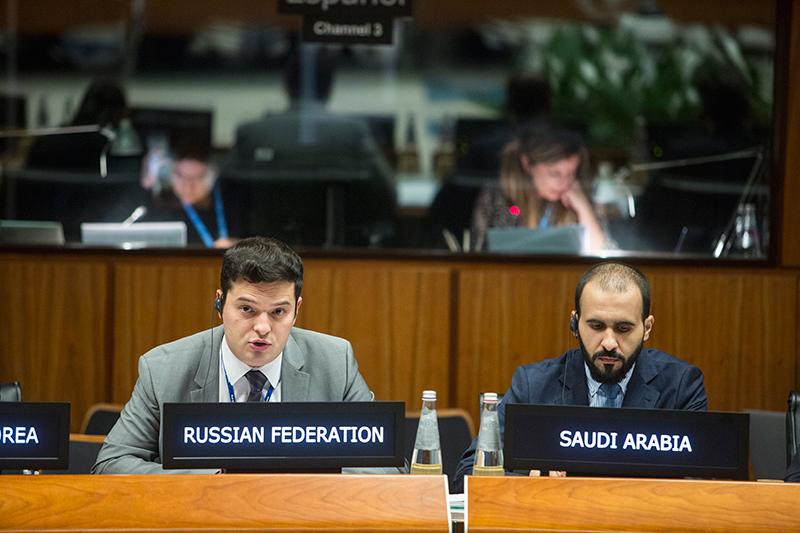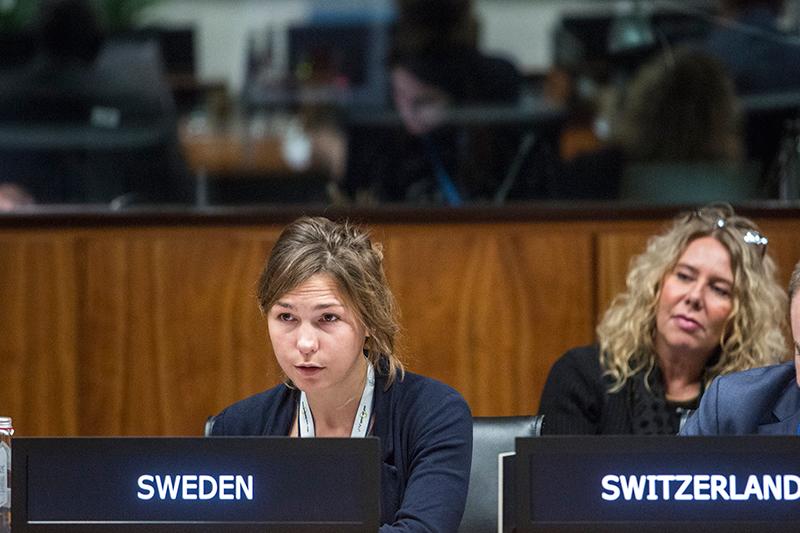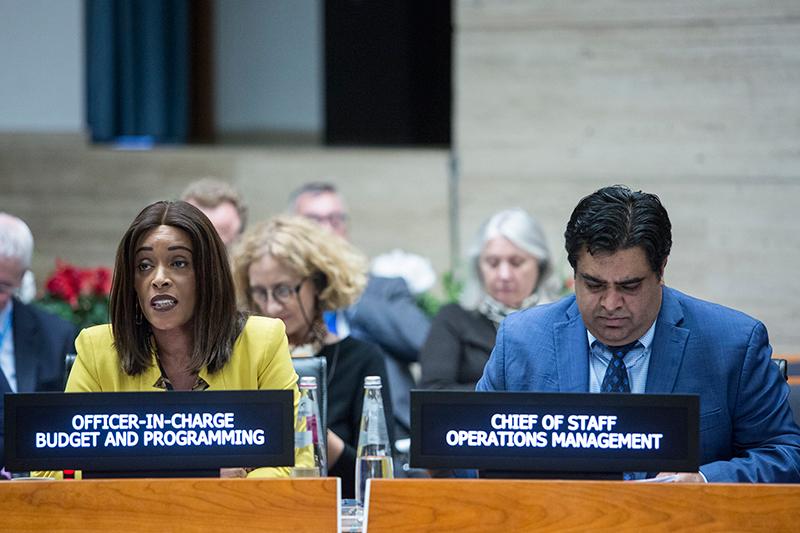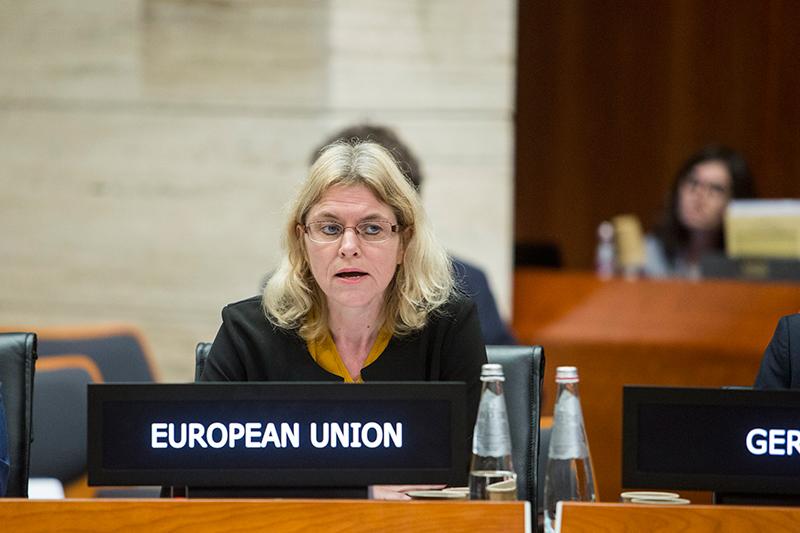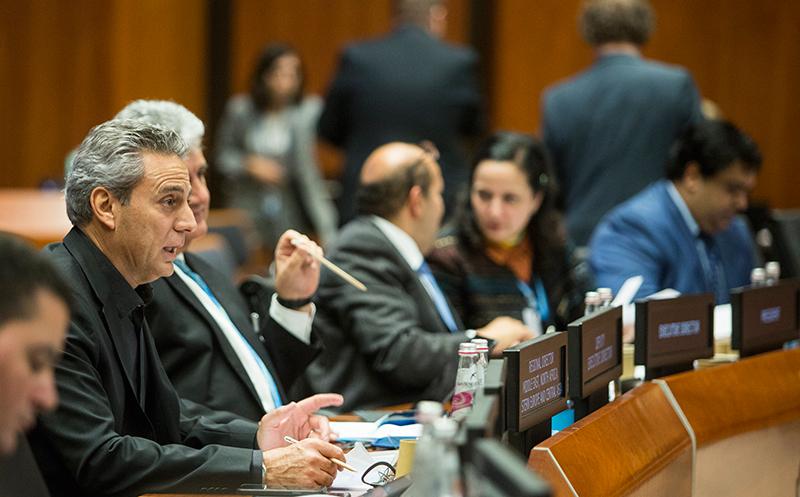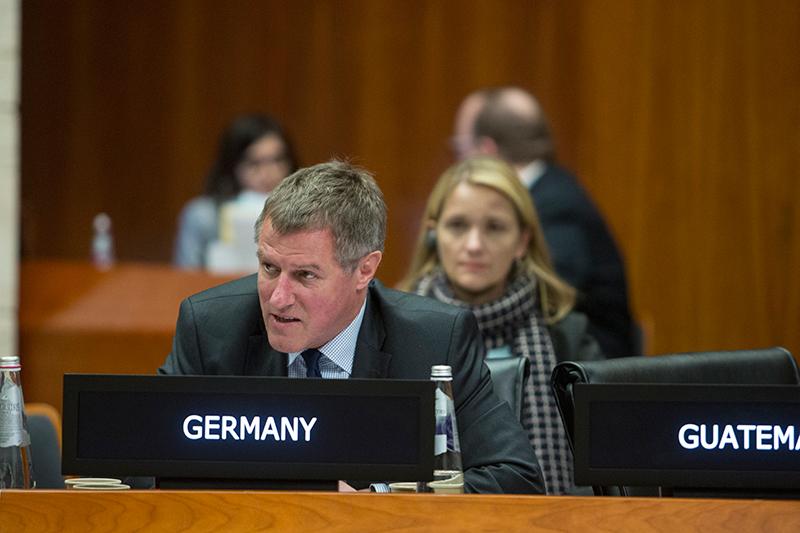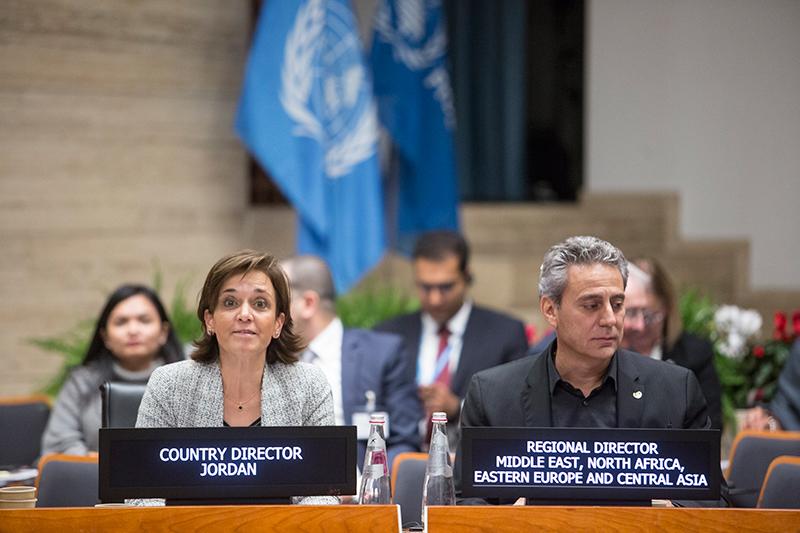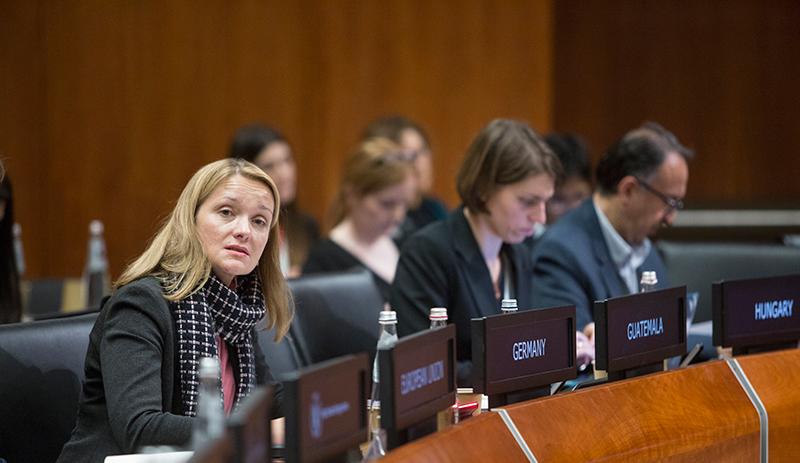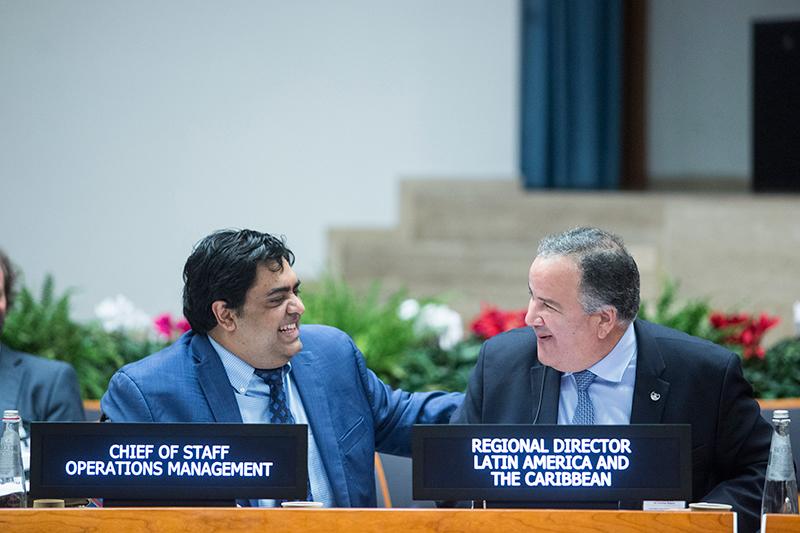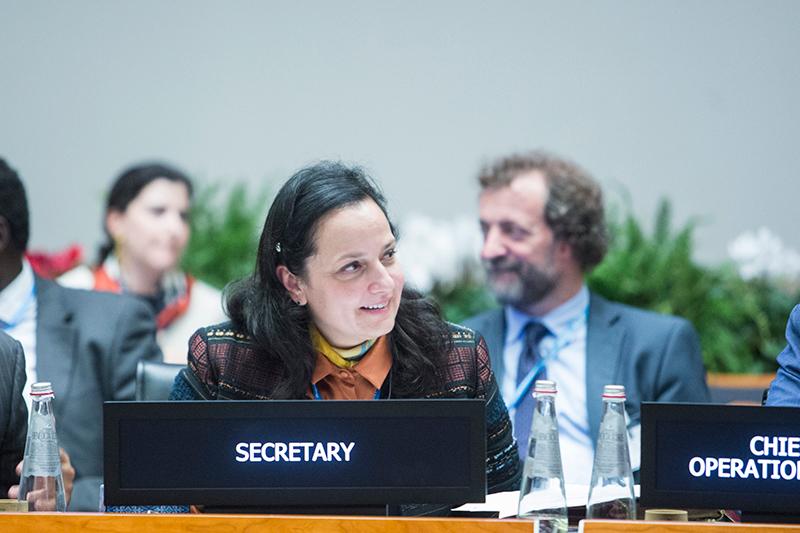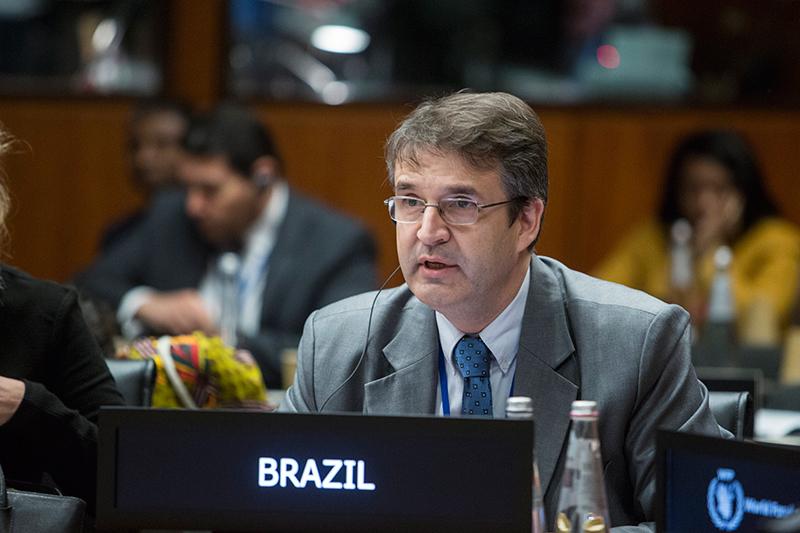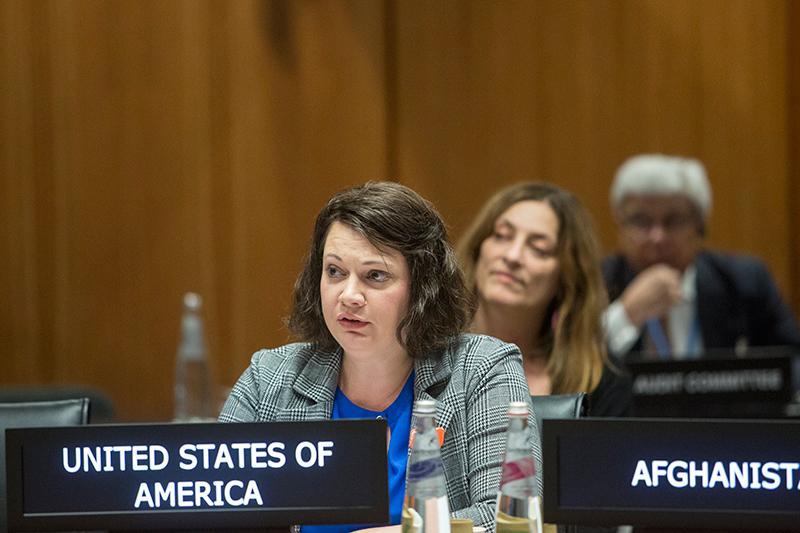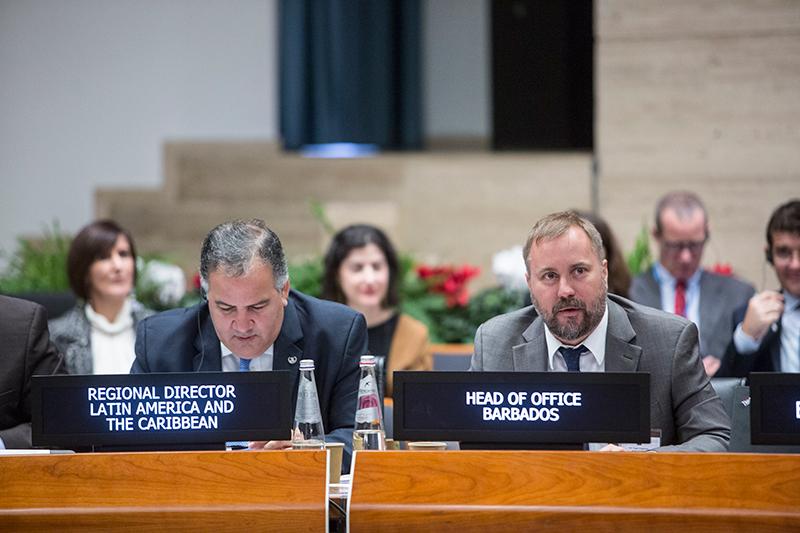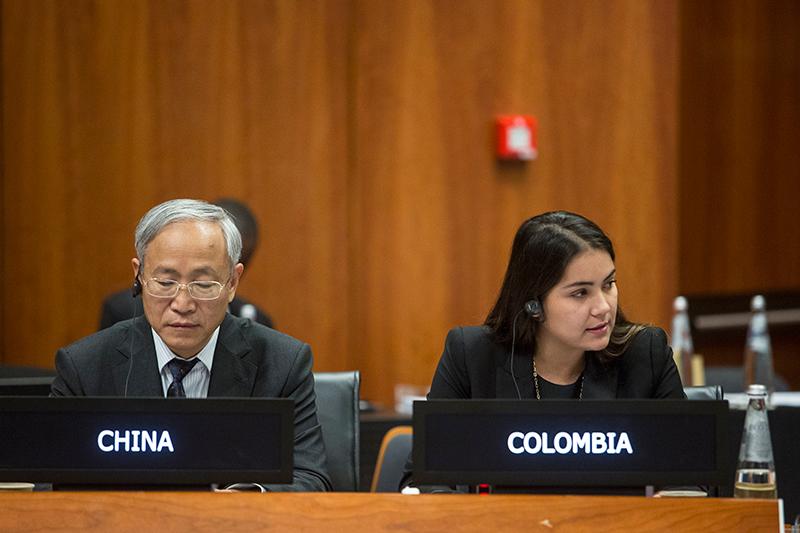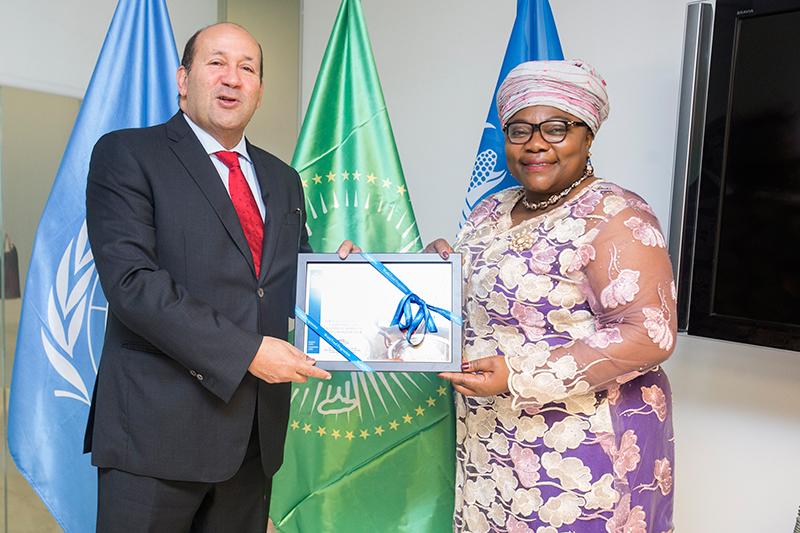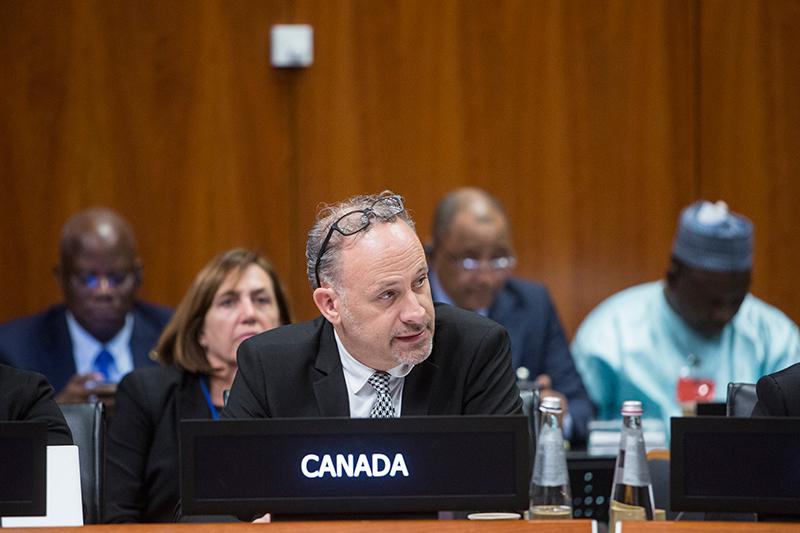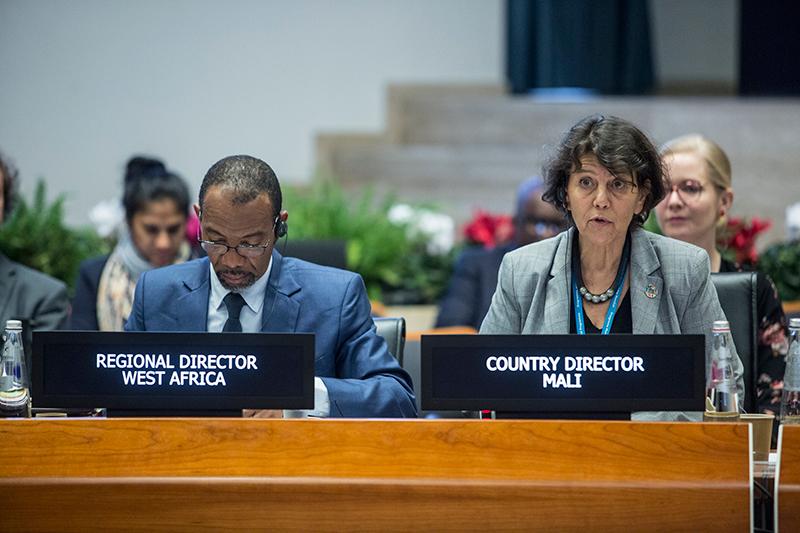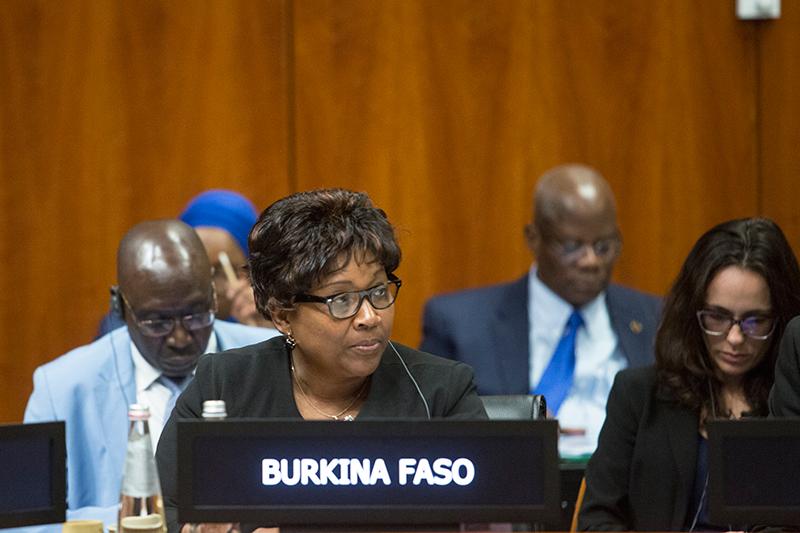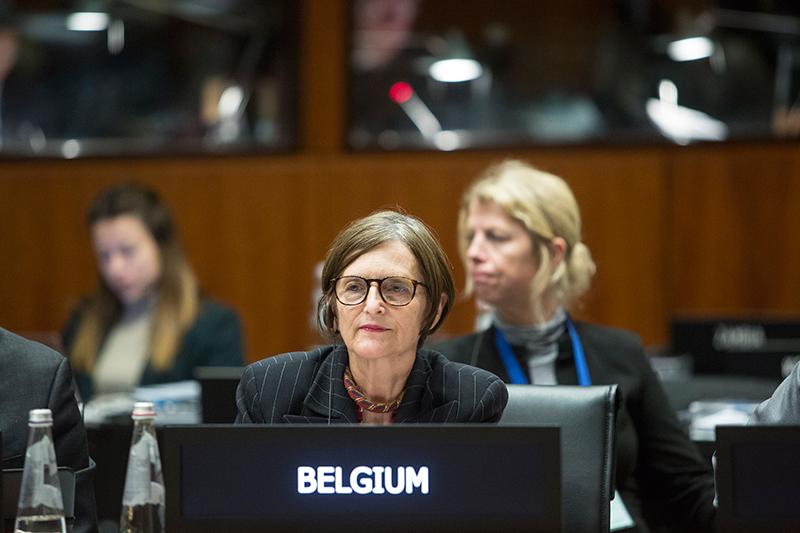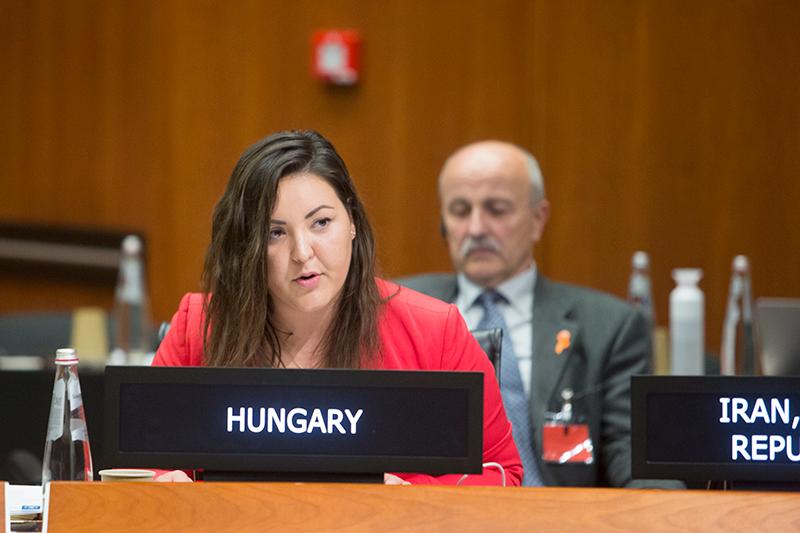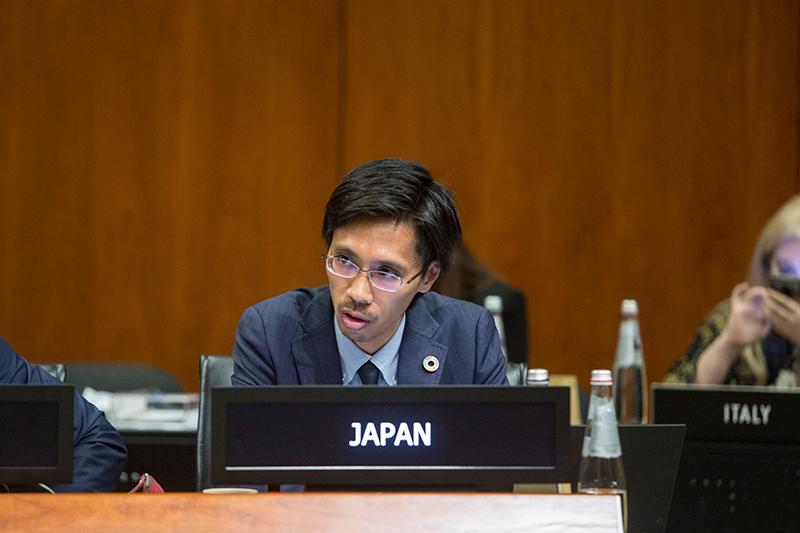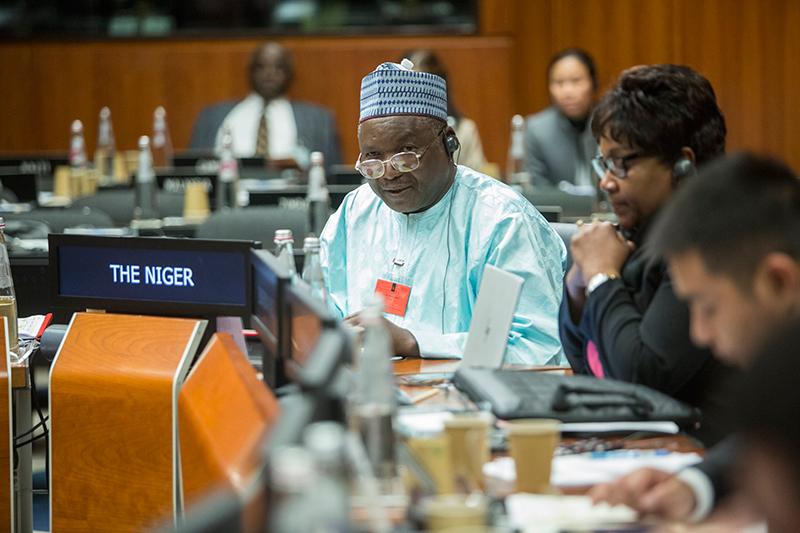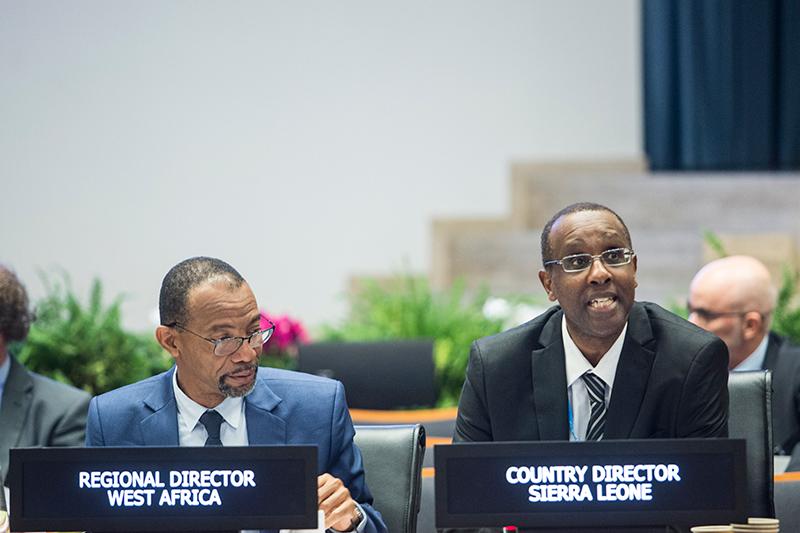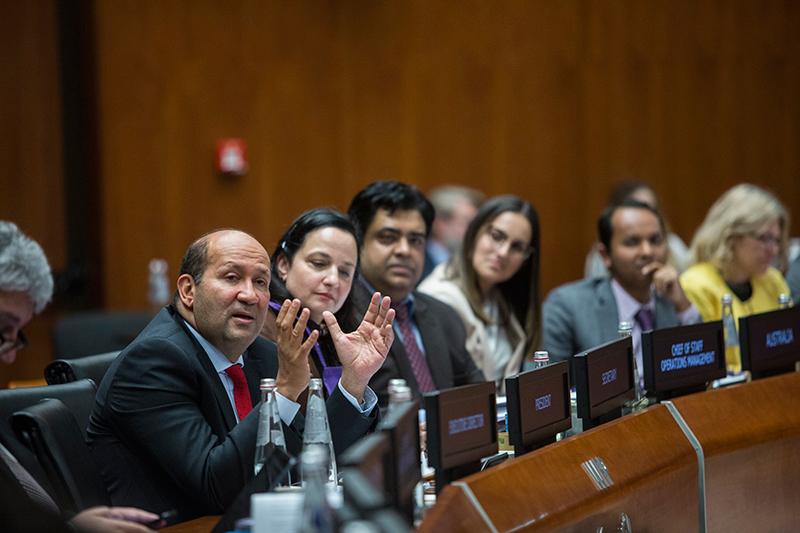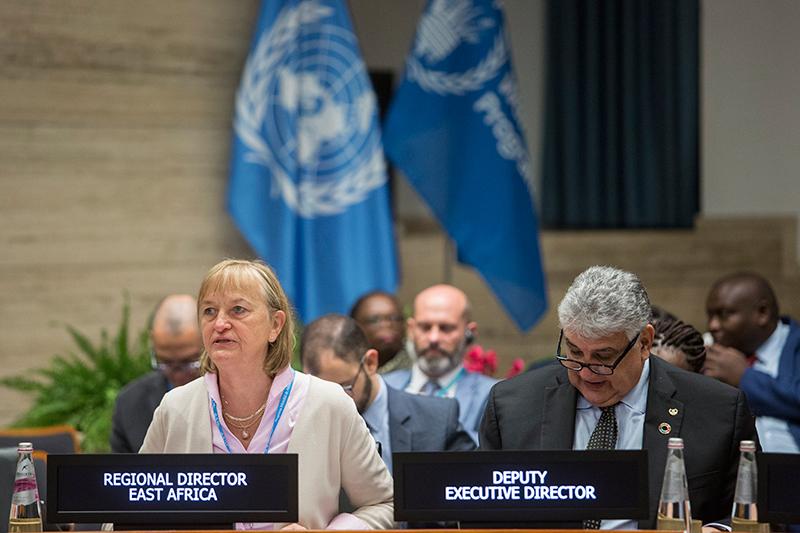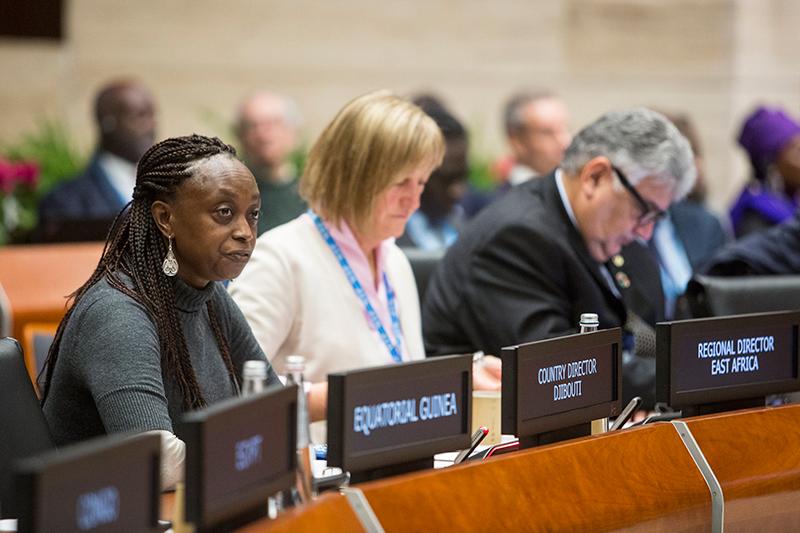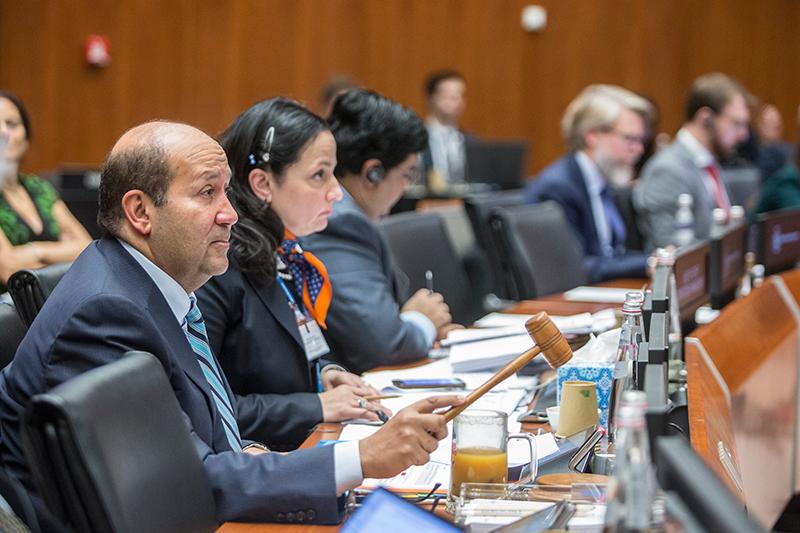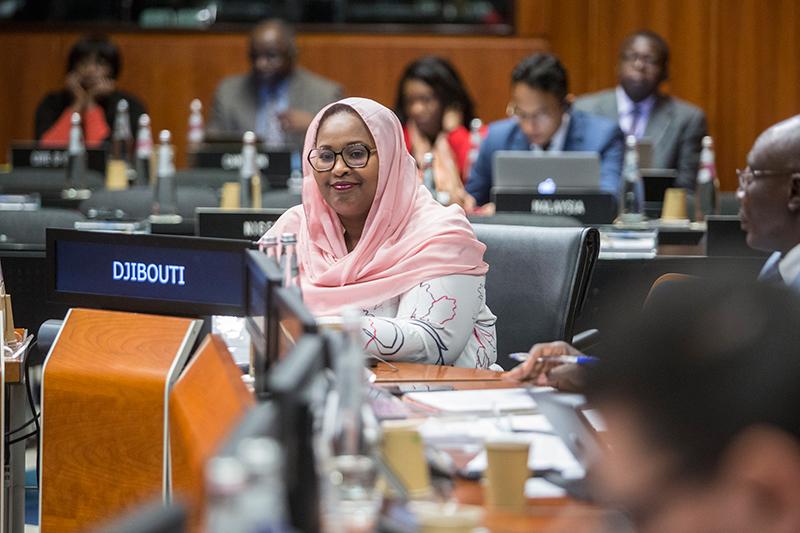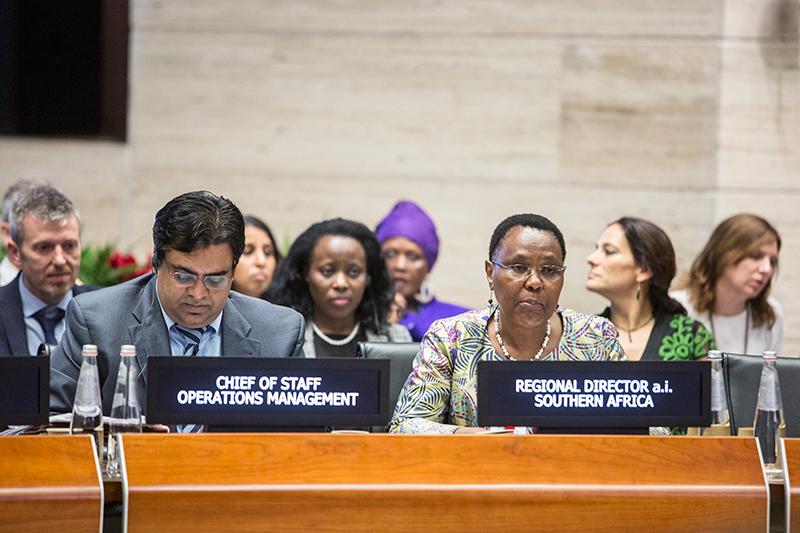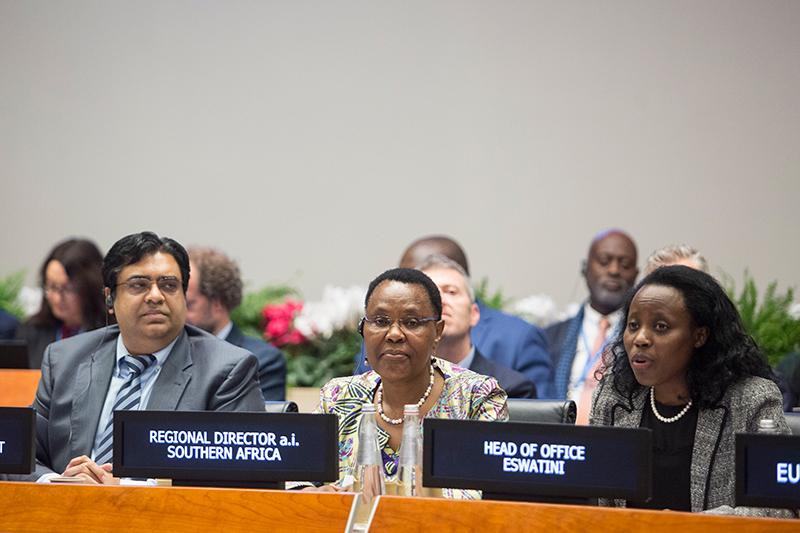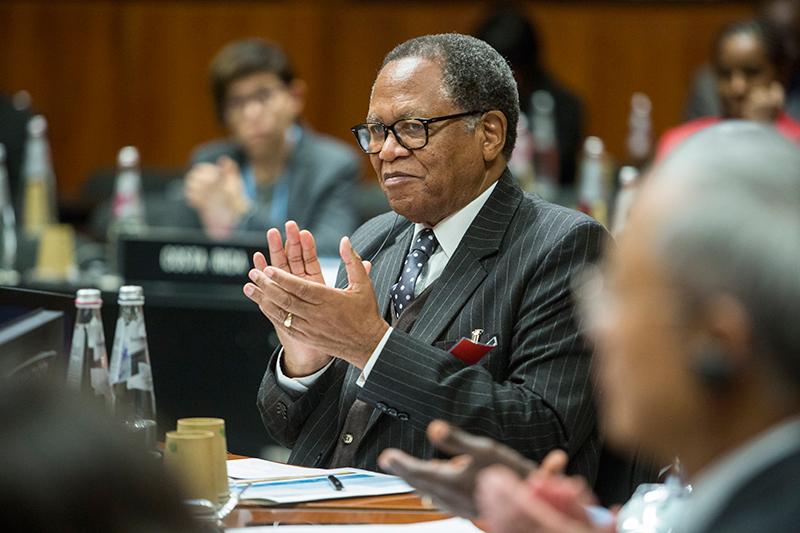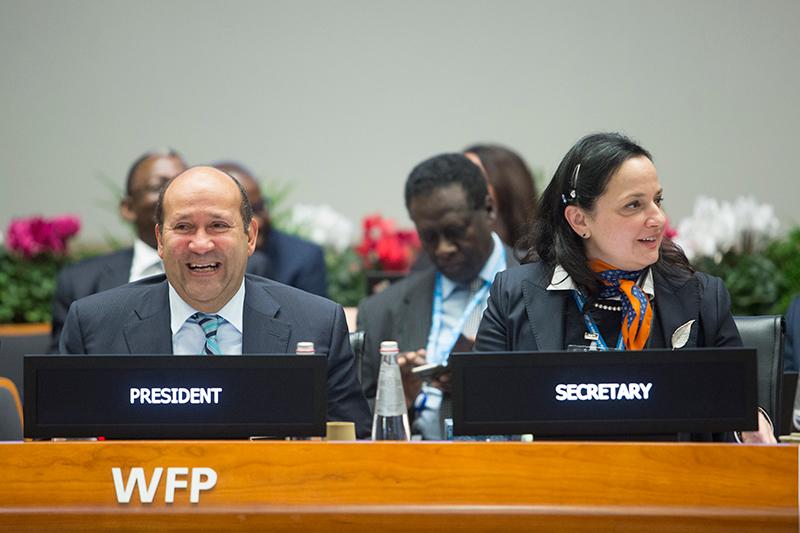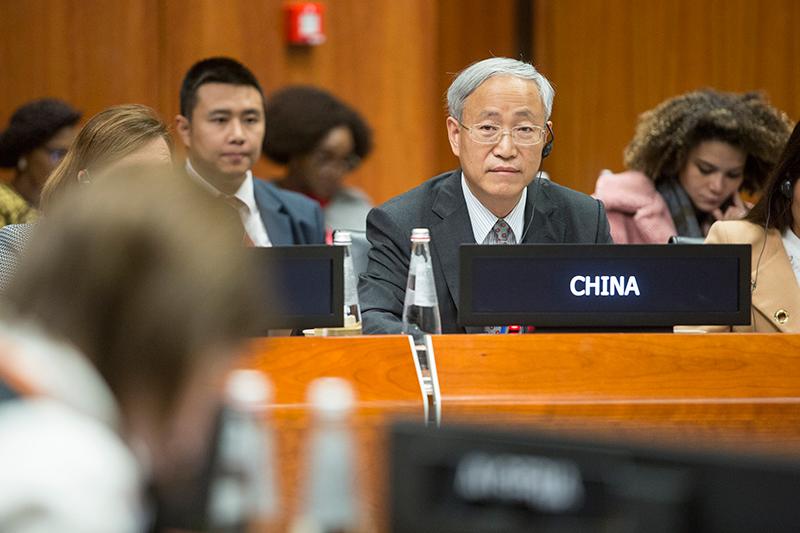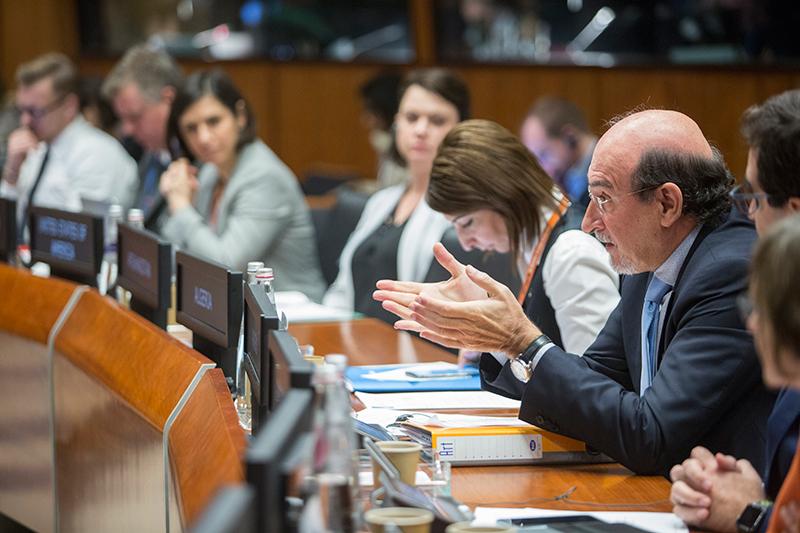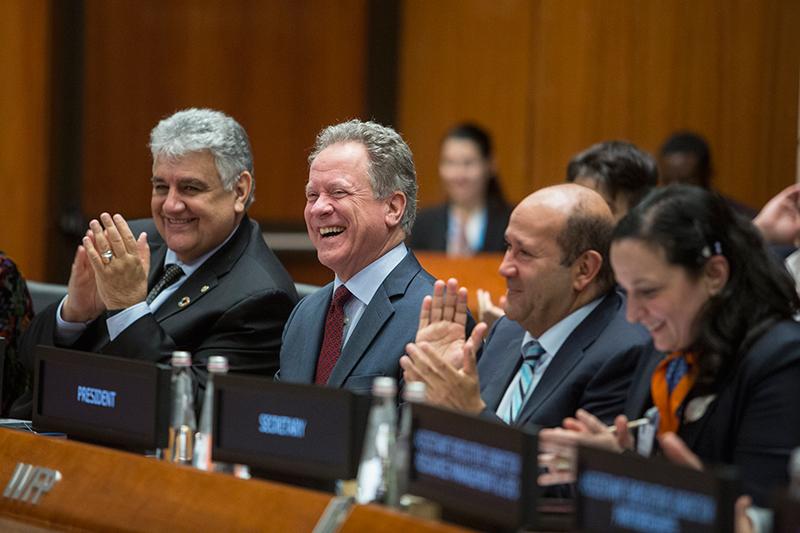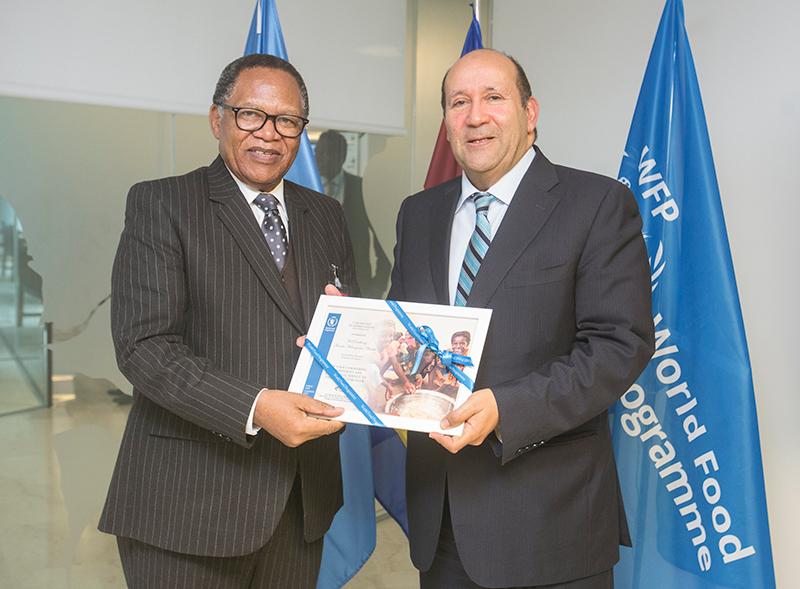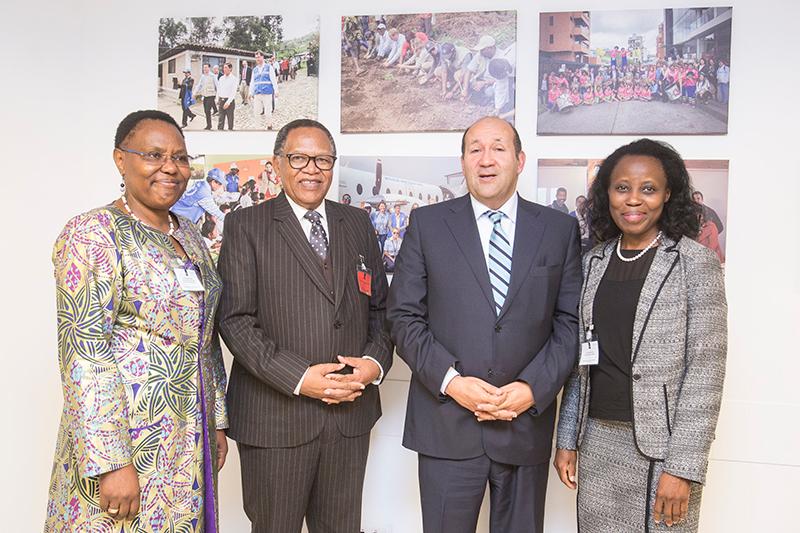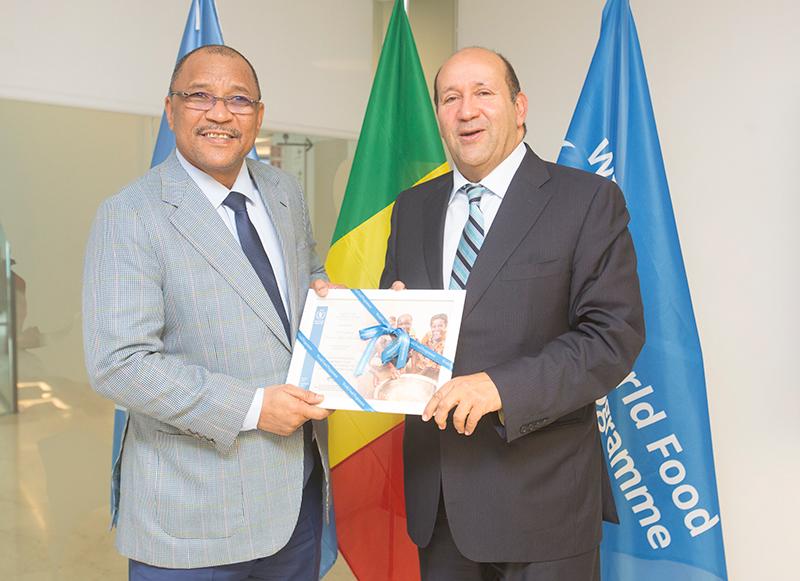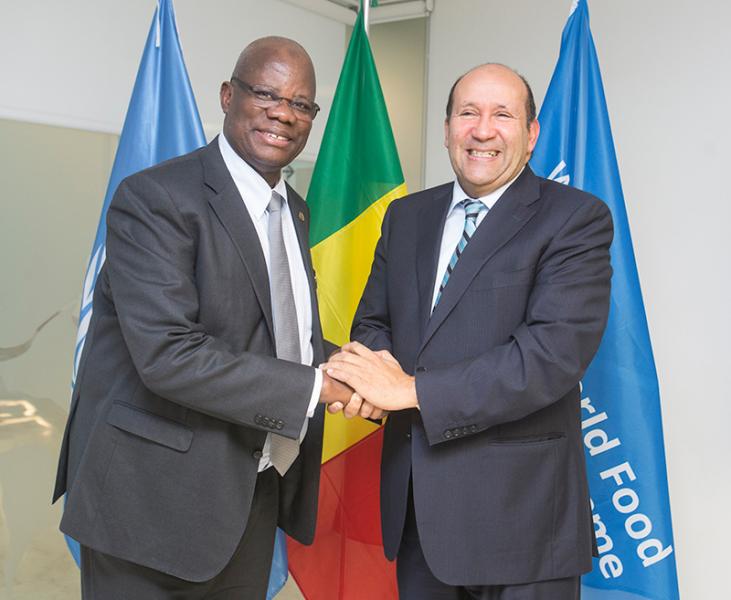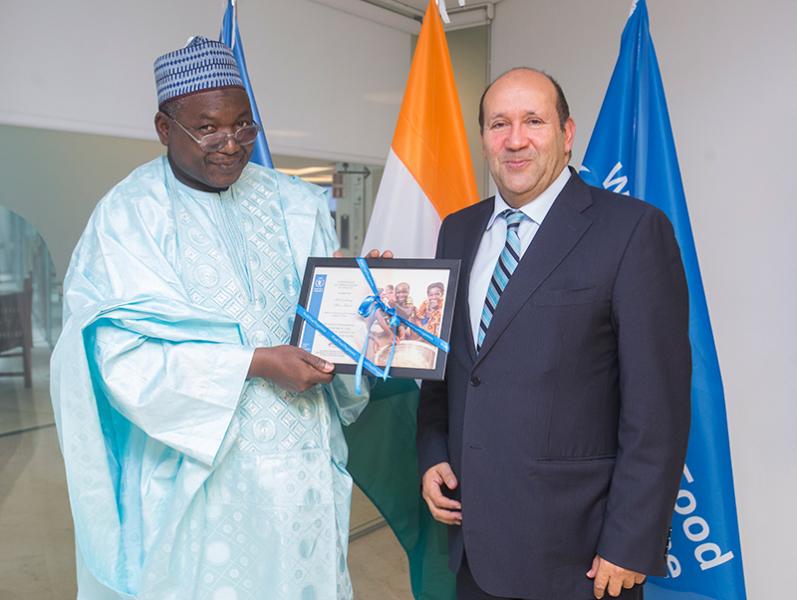From 18 to 21 November, the Second Regular Session of the Executive Board was held at WFP Headquarters, chaired by the President of the Executive Board, H.E. Hisham Mohamed Badr.
The session opened with inspirational messages from His Holiness Pope Francis and the Grand Imam of Al-Azhar, respectively delivered by the Executive Director, David Beasley, and the Board President.
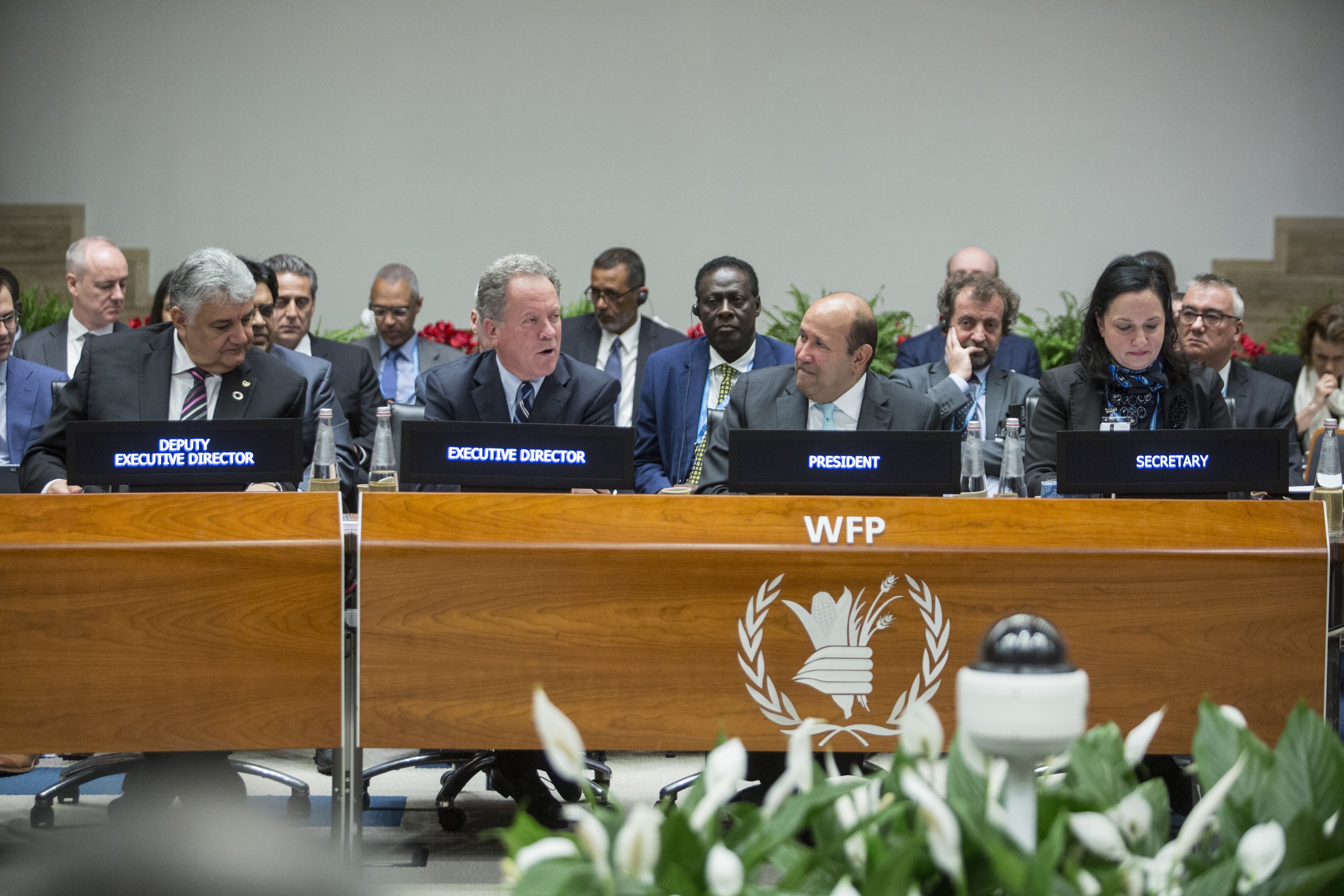
In His Holiness' message, the Pope condemned the culture of waste re-evoking what His Holiness’ predecessor Saint John Paul II called the “paradox of abundance” whereby in many places people do not have access to sufficient and healthy food, while in others, food is discarded and squandered. His Holiness complimented WFP on its global campaign Stop the Waste hoping that it will help assist all those who suffer the effects of poverty as to demonstrate that “whenever the human person is put at the centre of political and economic decisions, peace and stability are consolidated between nations”.
The Illustrious Grand Imam of Al-Azhar, Dr. Ahmed Al-Tayyib, called for all to reflect on reaching an international binding agreement that guarantees that each human being has the right to access food and medicine. “Poverty and disease can only be eradicated by the international will,” the Illustrious Grand Imam of Al-Azhar reinforced. Click here to read the full message.
The statements of the two religious leaders were followed by the opening remarks of Executive Director Beasley, who provided an update on activities and challenges for the organization. His full remarks can be found here.
In this busy session, seven Country Strategic Plans (CSPs) and four Interim Country Strategic Plans (ICSPs) – one of which was multi-country for the Caribbean – were approved, in addition to two CSP budget revisions, leading to a total of 83 plans approved since the launch of the Integrated Road Map (IRM) in 2017.
In addition, the Board approved the Management Plan (2020-2022) with a 2020 programme support and administrative appropriation (PSA) budget of USD 423.6 million.
Key policy and governance documents were approved or considered such as the Private-Sector Partnerships and Fundraising Strategy (2020-2025), Local and Regional Food Procurement Policy, Update on the Integrated Road Map, Update on collaboration among the Rome-based agencies, Update on WFP’s implementation of United Nations General Assembly resolution 72/279 (repositioning the United Nations development system).
The Report of the Joint Board/Management Working Group on Harassment, Sexual Harassment, Abuse of Power and Discrimination was appreciated by the Board which also met with the Executive Director in closed session to discuss these important matters. Both WFP management and Member States reinforced their commitment to prevent and address issues of abusive conduct within the organization. In closing the discussion, the President led the Board in a standing ovation to WFP staff and stated that management and the Board were united in their support to ensure a workplace environment that was free from harassment and abuse of all kinds.
Finally, the Summary report on the evaluation of the WFP corporate (Level 3) emergency response in northeast Nigeria (2016–2018) and its associated management response were very well received by the Board which complimented both evaluation team for the excellent report as well as the team on the ground for its valiant efforts.
All agenda and documents related to this EB session are available here. Click under the respective tabs to consult supplementary information, material from the side events, exhibitions and demos, and view the photo gallery and videos.
By Annalisa Vecchio, Executive Board Consultant, Rome

